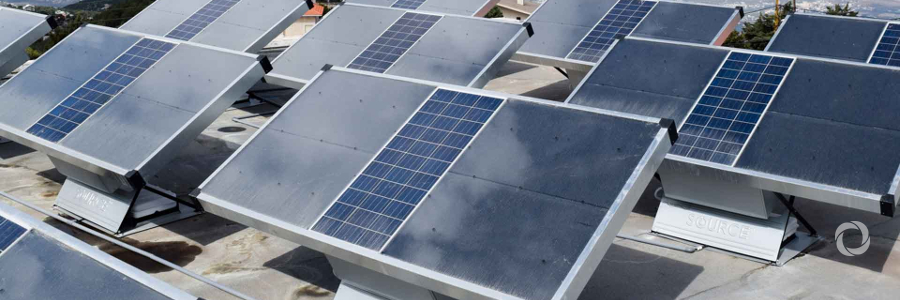Asian Development Bank (ADB) Vice-President Mr. Stephen Groff joined Vanuatu’s Minister of Education and Training Mr. Jean-Pierre Nirua and Zero Mass Water’s (ZMW) Asia-Pacific Field Operations Lead Mr. Benjamin Lim to inaugurate a new technology to provide safe and reliable drinking water to the Petros Primary School community in the island of Tanna.
The technology, called SOURCE Hydropanels and developed by the US-based ZMW, is an off-grid, solar-powered innovation which extracts vapor into a proprietary absorbent material and produces drinking water from sunlight and air. In 2017, ADB installed a number of these hydropanels at its headquarters in Manila, Philippines to demonstrate the viability of this technology.
“The Government of Vanuatu appreciates the support of its partners, ADB and ZMW, in this truly remarkable pilot project,” said Mr. Nirua who led the commissioning ceremony. “This technology fills a critical gap in providing safe drinking water to the Petros school community and we hope this pilot may be extended beyond the education sector.”
While rainfall is plentiful and seasonal in Tanna, safe drinking water is not. Captured rainwater is regularly contaminated by sulfur dust from the very active nearby volcano, Mount Yasur. The collected water from the SOURCE Hydropanels flows into a reservoir where it is mineralized with calcium and magnesium for health and taste benefits, helping address the contamination issue. The technology also helps in environment preservation, with each hydropanel displacing about 50,000 standard PET bottles.
“ADB, Zero Mass Water, and the Government of Vanuatu worked in partnership to install 20 solar-powered drinking water units that convert moisture in the air into safe drinking water,” said Mr. Groff. “This project is an excellent example of innovation and technology delivering real benefits to people in places like Tanna.”
The commissioning of the technology is under the Unlocking Innovation for Development, which is supported by ADB through a technical assistance grant. The project, which began about 9 months ago and is being piloted at the Tanna school community, cost about $75,000 with the 20 hydropanel array capable of producing up to 3,000 liters of clean drinking water per month.
The pilot project is being closely monitored to determine its potential for further adoption by the private sector for resorts, businesses, and households; public sector; as well as other countries in the Pacific.
Original source: ADB
Published on 27 August 2018

